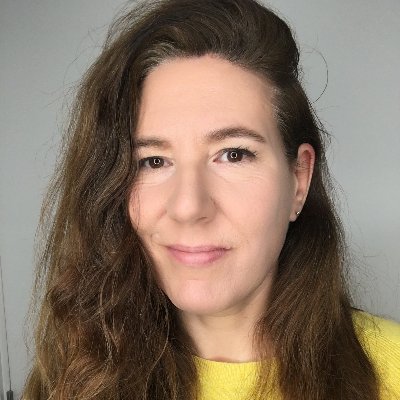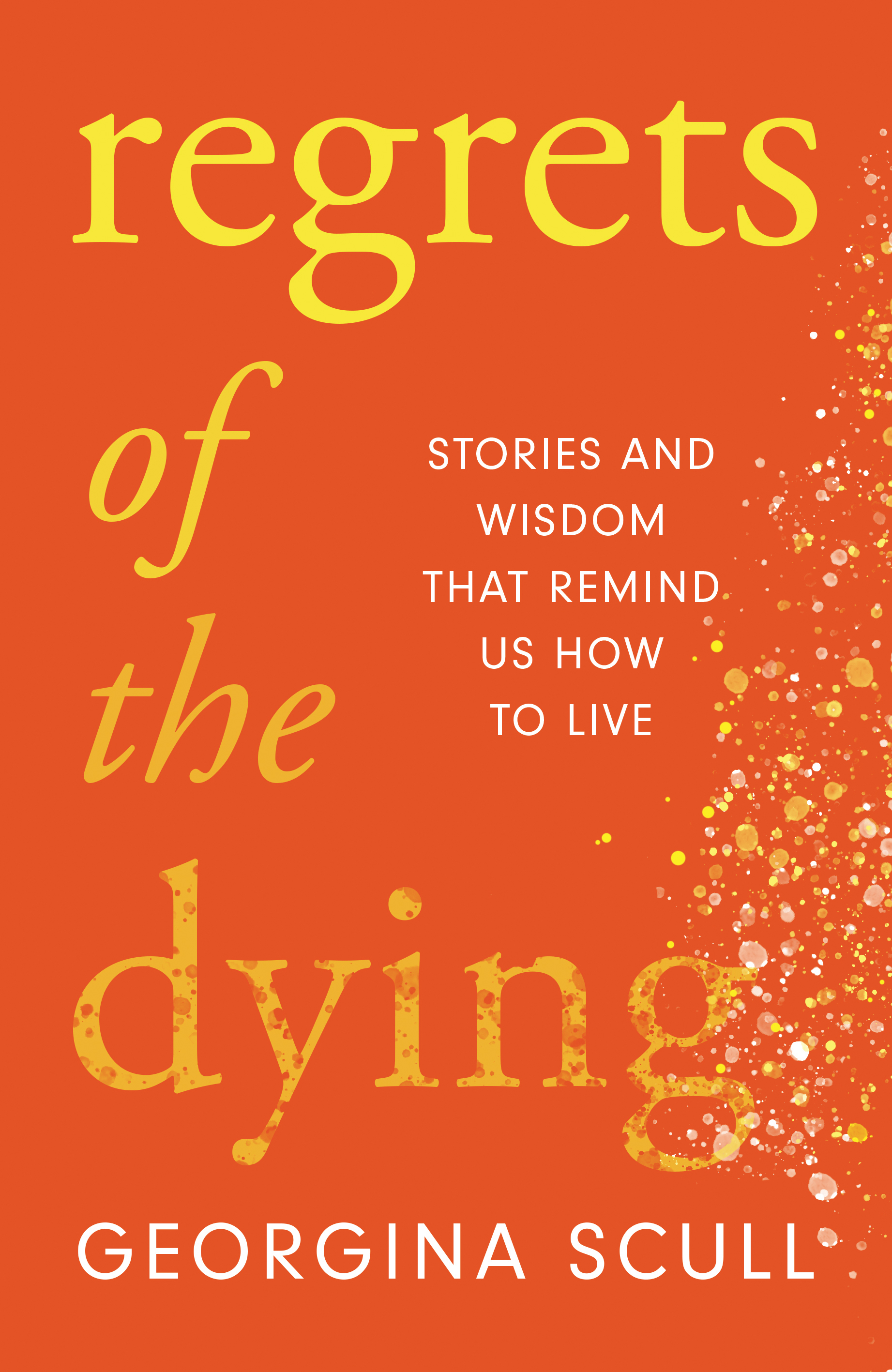I’m very excited to introduce a new series to Frost. Spotlight does just that, it finds people, or things, that deserve to have a light on them. Launching this is Georgina Scull who I’m a huge fan of. Her book, Regret’s of the Dying, is a wonderful, life-affirming book. Georgina is such a talented person, and also a thoroughly decent human being. Grab a copy of her book now. You won’t be disappointed.
Tell us a bit about you.
I’m originally from Central London, but live in Cambridge now. My family is small; English on my mum’s side and Romani Gypsy and Norwegian on my dad’s. I have one daughter and I’m happily separated.
You work in different mediums. Which one is your favourite?
That’s like asking someone who their favourite child is! Honestly, they’re all great. I work in podcasts, radio, and books, and am forging into film. Really the story dictates where it should be told. Sometimes you get an idea that you can hear and is more dialogue-based, so it’s natural home might be audio. It’s just different ways of storytelling and they’re all brilliant.
Have you always wanted to tell stories?
No. I’ve always loved stories, and always loved English at school, but to be honest it never occurred to me that someone might get paid to write, or that it might actually be a job you could choose, but I knew I wanted to do something creative. I started when I was 19 – and had no idea it would take me this long!
How do you come up with ideas?
I think I’m pretty lucky, because I always have more ideas than I can work on. Where do they come from? Just living, and listening to people, and connecting the dots. Lots of the time it might come from one central question you want to answer – with Regrets it was ‘if you only had one year to live, what would you do with it?’. Sometimes it’s an image you imagine or something you see in real life. And then it becomes – what if that couple who look like they’re in an embrace are actually arguing, and vice versa. I think it’s about finding a question or moment you want to explore; and I’d say that’s true of both fiction and non-fiction.
You started Regrets of the Dying as a podcast. How difficult was it turning the idea into a book?
It wasn’t hard, because most of the people that feature in the book weren’t on the podcast so it felt very new. The most difficult thing was finding people who wanted to talk, and being worried about upsetting them when we did sit down together. That, obviously, would never be my aim. Luckily, from what the interviewees told me afterwards, the experience seemed to be a cathartic one.
What’s your favourite thing about becoming a published author?
Probably receiving messages from readers, telling me that my book helped them. That, to me, is really amazing. I’m not sure if this’ll make any sense, but when the hardback came out last year I was 48. I’d been plugging away for so many years, mainly writing fiction, but really didn’t have much to show for it. I’d made a podcast series, and created a radio play which was well received, but really hadn’t achieved much for the amount of years I’d been working. I felt completely invisible. So to write a book that may have helped others was a very special thing, and something I am really proud of.
Tell us about your creative process.
When I start a new project I always buy a new pad, always A4 and always lined. I usually come up with the title very quickly and then do a bit of a one-two sentence blurb just to keep me focused on the main story and my reason for wanting to tell it. If I can’t come up with that blurb quickly, chances are the idea isn’t ready yet. Then, if it’s a podcast or a book, I’ll sketch out the cover art. This is purely for me: it helps to see it as a finished thing. Then I brainstorm the characters, the basic beats of the story and then make a schedule to write it. I then try and write most days but don’t really do set hours. It always takes me longer than I hope. Always. But if I try to do too much each day I end up doing nothing. I have a small office, but I tend to write in bed, or in cafes. And if I get stuck I go walking. It’s strange how a plot point or problem can seem impossible, then you go walking, listen to a podcast about a completely different subject, and by the time you sit down for a cup of tea that impossible thing seems weirdly obvious.
What is the highlight of your career so far?
Probably going on Woman’s Hour, mainly because I remember my mum listening to it on the radio when I was growing up.
What advice do you have for people who want to have a career like yours?
It’s important to be practical: to have another stream of income because making a liveable income from writing is incredibly hard; to not wait for some magic moment to write, and to crack on in the little pockets of time you do have; to have a clear idea of what you want to achieve; and to send your work out – if you’ve written something it serves no purpose sitting in a bottom drawer. You have to remember, like finding love, it’s a bit of a numbers game: not everyone will like/love your stuff, but you don’t need everyone to love it. You just need one or two people on your side that will open the gates wide enough for you to sneak in.
But I think probably the biggest thing I wish I’d learnt a lot sooner is to have a few people around you who believe in you. People who can cheerlead and help you keep the faith when you’re consumed with doubt and drowning in rejection (because it can feel like that sometimes, unfortunately). For years I was in a relationship with someone who wouldn’t read my work, wouldn’t listen to my podcasts, and really didn’t want me to talk about it at all. And in those moments of doubt, when I needed reassurance, all I had was myself. I now have that mutual support from my new partner and a small group of lovely friends and writers. I just wish I’d realised my need for it sooner because we all need support. Even those of us who are used to being the ‘strong one’.
What are you working on now?
I’m working on my next book, and have a couple of audio projects that are in the pipeline; one factual and one fiction. I’m a bit superstitious so I won’t say any more than that!
The paperback of Regret’s of the Dying is available on March 30th. Other formats are out now.


